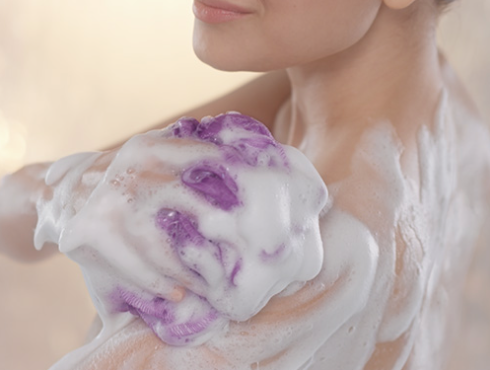What’s Living in Your Loofah?

courtesy of Women’s Health
Showering with a loofah makes your soap extra sudsy as you clean your body and it leaves a particularly clean feeling versus using your hands, but if you don’t properly sanitize your loofah it could be doing more harm than good.
A loofah may make you feel squeaky clean, but recent studies found that loofahs are actually the perfect home for bacteria and germs to live and grow.
The moist environment of your shower is the ideal home for bacteria, which love dark, humid, and wet places. They feed off dead skin cells that are scrubbed off by the loofah and begin to grow and multiply, calling your shower accessory home.
“Loofahs are hygienic to start out with,” Associate Professor in the Department of Microbiology at Cornell University, Esther Angert, told The Huffington Post. “It’s how they are maintained that will affect their longevity.”
You’re only helping the bacteria, furthermore, if you leave the loofah in the shower to dry because they cultivate while the wet loofah is hanging in the shower to dry. And lack of circulation in the shower makes it easier as well.
If you insist on using the loofah, dry it with a towel, blow dry it for a few minutes on high heat, and leave it on the counter to air-dry.
Old dirt and dead skin cells are redistributed back onto your body without proper loofah sanitation, which will start to eat dead skin cells directly off of you.
If you shave first and then scrub with your loofah, you’re leaving your skin susceptible to infection.
Pores on your skin open up when you shave, which become exposed to anything you may put on it (this is why deodorant may sting your underarms if you put it on within 10 minutes of shaving). When you shave your legs and then use your loofah on them, you are letting old skin cells and bacteria directly into your skin. This can cause irritations and infections.
Your loofah should be replaced every two to three weeks and should not be kept in your shower. It’s best for your skin to do without one, but if you can’t resist, make sure you are taking all necessary precautions to keep it clean, for the sake of your body and your health.
Your donation supports independent, student-run journalism at Pace University. Support the Pace Chronicle to help cover publishing costs.

